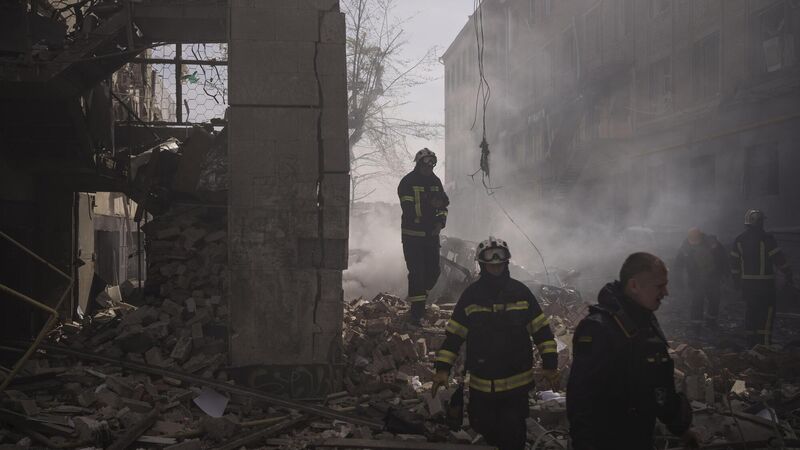Irish Examiner View: Open conflict between Nato and old Soviet empire now closer than ever before

Firefighters work to extinguish multiple fires after a Russian attack in Kharkiv, Ukraine, on Saturday, April 16. Picture: Felipe Dana/AP.
It is now 54 days since Vladimir Putin sent his forces into Ukraine on what it pleases him to call a “special military operation” and what the rest of the world knows to be a bloody act of invasion which has changed the balance of power in Europe for at least the next decade and, quite possibly, forever.
On that dire Thursday at 5.30am Moscow time (3.30am in Ireland) and citing Article 51 of Part 7 of the UN Charter, the Russian leader acted, he said, to support the Donetsk People’s Republic and the Luhansk People’s Republic. He called for the “demilitarisation and denazification” of Ukraine.















